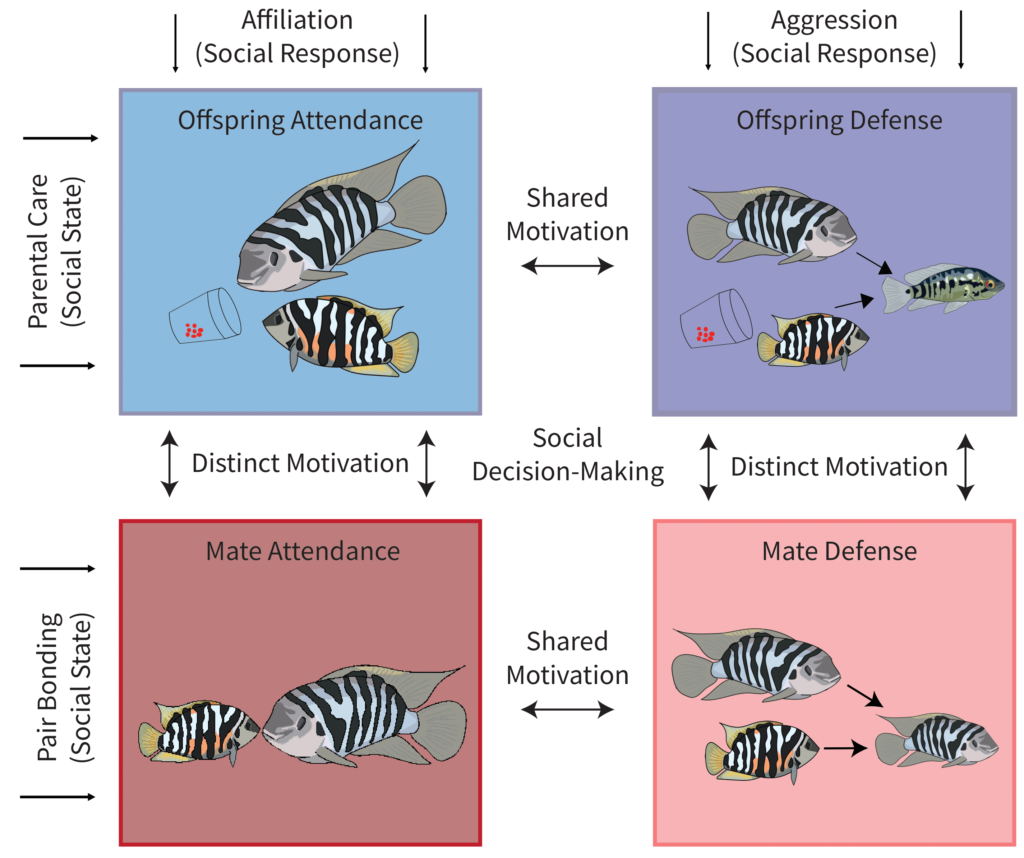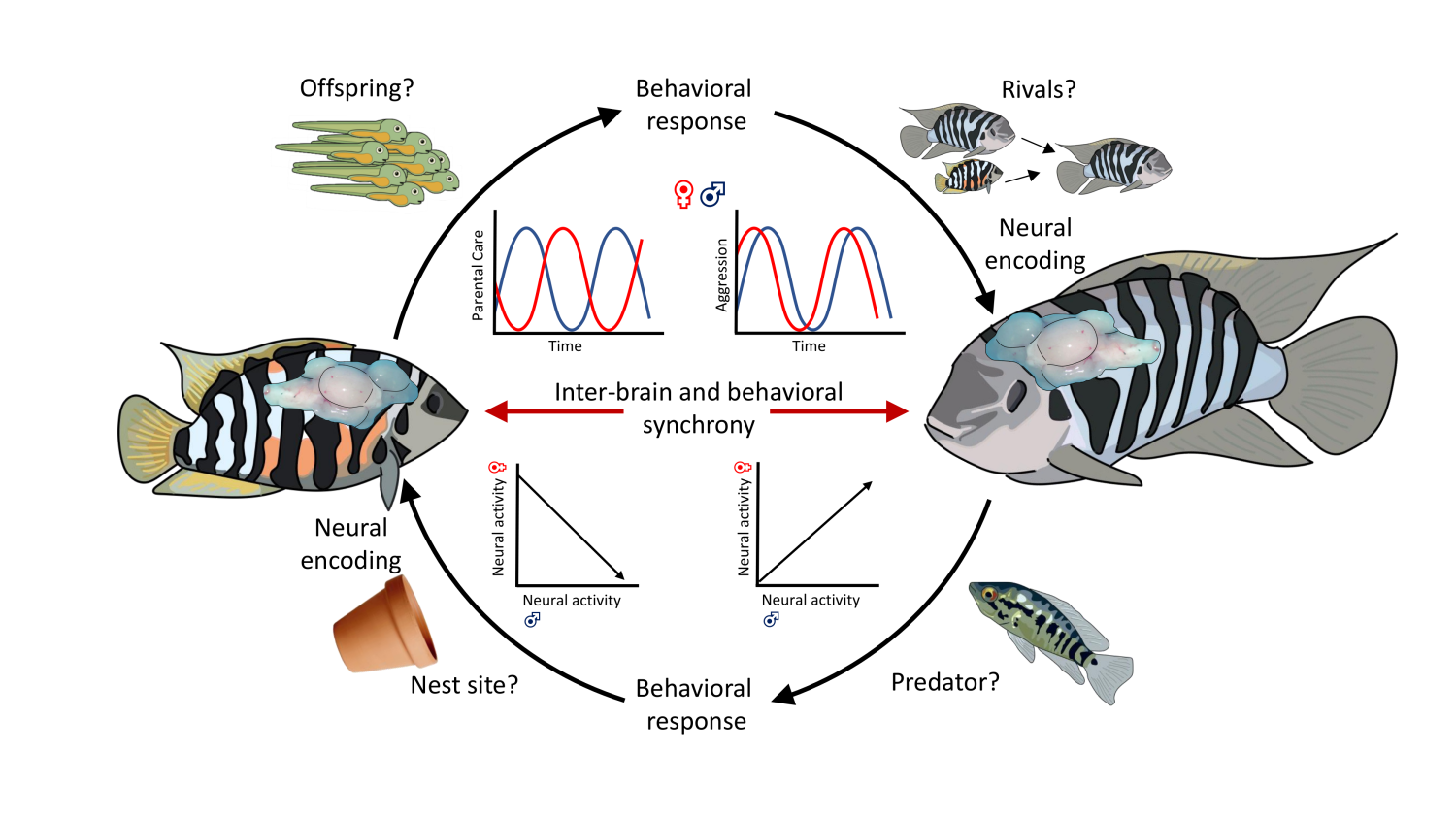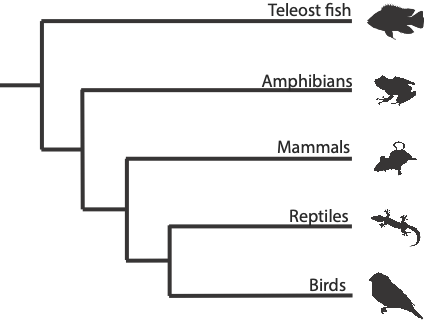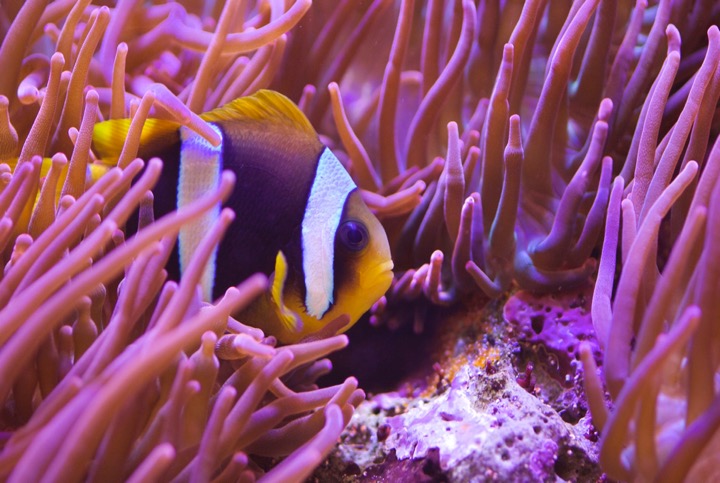Ross DeAngelis, PhD
Sex, aggression, and parental care: Investigating the neuromolecular and genomic components underlying decision-making in a dynamic social world
With a specific interest in (1) how enduring social bonds, such those between males and females in monogamous species, or between parents and offspring, change the architecture of neural circuits to bias behavioral responses, and (2) how social interactions are encoded through cell type specific spatiotemporal patterns of neural activity and gene expression.

Social States
Parental care and pair bonding are remarkable examples of how social interactions and group dynamics shape the brain and behavior. For example, females who may be receptive to opposite sex individuals often become hyper-aggressive in defense of their offspring while parenting. My work investigates how social interactions modify components of socially sensitive neural networks to facilitate context dependent adaptive behavior
Brain and Behavioral Synchronicity
As individuals make social decisions, they are constantly observing the responses of their peers and modifying their current decisions based on the perceived social consequences of past choices. This synchronicity is easily observed, but occurs through complex interactions of neural gene expression and molecular activity, as the two interacting animals often express distinct behavioral phenotypes, such as those that occur during sex, aggression, and parental care.


Comparative Neuroethology
Comparative neuroethology necessitates commonality, or standardized measurements across time and space, where a common currency can be exchanged across species. I use the transcriptomic measurement of nucleotide sequences, shared across all species, in brain areas homologous across vertebrate evolution to uncover principles of behaviorally sensitive neural organization.
